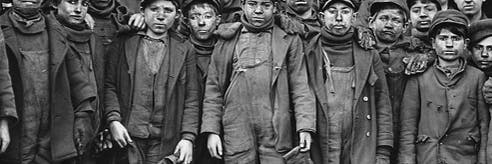


Working Class Historical Fiction from the not so gilded age. Labor History. Social justice. An injury to one is an injury to all!
https://michaeldunnauthor.com
https://www.thehistoricalfictioncompany.com/michael-dunn
Pronouns: He/him
#Solidarity #Sabotage #GeneralStrike
#HistoricalFiction #WorkingClass #LaborHistory
#WomensRights #antifascism #AntiImperialism #LGBTQIA+ #EndAbleism #TransRightsAreHumanRights #SelfDetermination #ClimateChange
This profile is from a federated server and may be incomplete. Browse more on the original instance.